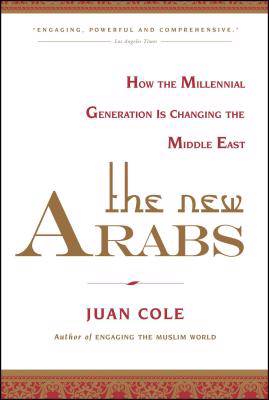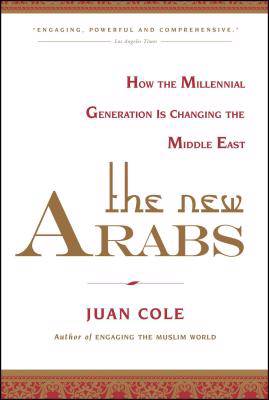
- Afhalen na 1 uur in een winkel met voorraad
- Gratis thuislevering in België vanaf € 30
- Ruim aanbod met 7 miljoen producten
- Afhalen na 1 uur in een winkel met voorraad
- Gratis thuislevering in België vanaf € 30
- Ruim aanbod met 7 miljoen producten
Zoeken
The New Arabs
How the Millennial Generation Is Changing the Middle East
Juan Cole
Paperback | Engels
€ 23,95
+ 47 punten
Omschrijving
Renowned blogger and Middle East expert Juan Cole takes us "inside the youth movements in Tunisia, Egypt, and Libya, showing us how activists used technology and social media to amplify their message and connect with like-minded citizens" (The New York Times) in this "rousing study of the Arab Spring" (Publishers Weekly, starred review).For three decades, Cole has sought to put the relationship of the West and the Muslim world in historical context. In The New Arabs he has written "an elegant, carefully delineated synthesis of the complicated, intertwined facets of the Arab uprisings," (Kirkus Reviews), illuminating the role of today's Arab youth--who they are, what they want, and how they will affect world politics. Not all big groups of teenagers and twenty-somethings necessarily produce historical movements centered on their identity as youth, with a generational set of organizations, symbols, and demands rooted at least partially in the distinctive problems of people their age. The Arab Millennials did. And, in a provocative, big-picture argument about the future of the Arab world, The New Arabs shows just how they did it. "Engaging, powerful, and comprehensive...The book feels as indispensable to scholars as it is insightful for a more casual reader" (Los Angeles Times).
Specificaties
Betrokkenen
- Auteur(s):
- Uitgeverij:
Inhoud
- Aantal bladzijden:
- 368
- Taal:
- Engels
Eigenschappen
- Productcode (EAN):
- 9781451690408
- Verschijningsdatum:
- 20/10/2015
- Uitvoering:
- Paperback
- Formaat:
- Trade paperback (VS)
- Afmetingen:
- 150 mm x 231 mm
- Gewicht:
- 408 g

Alleen bij Standaard Boekhandel
+ 47 punten op je klantenkaart van Standaard Boekhandel
Beoordelingen
We publiceren alleen reviews die voldoen aan de voorwaarden voor reviews. Bekijk onze voorwaarden voor reviews.











